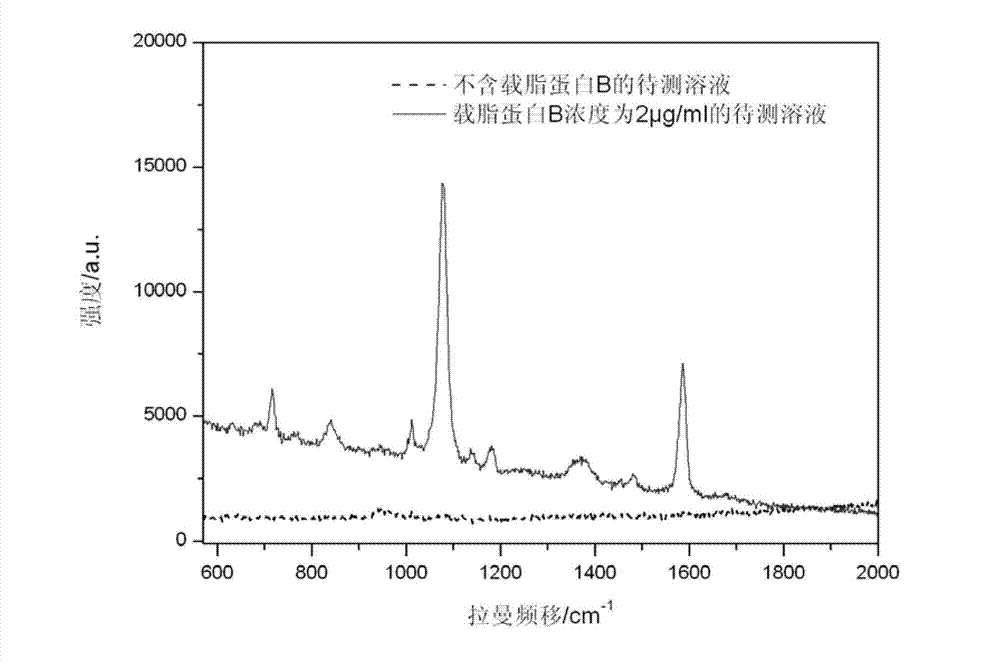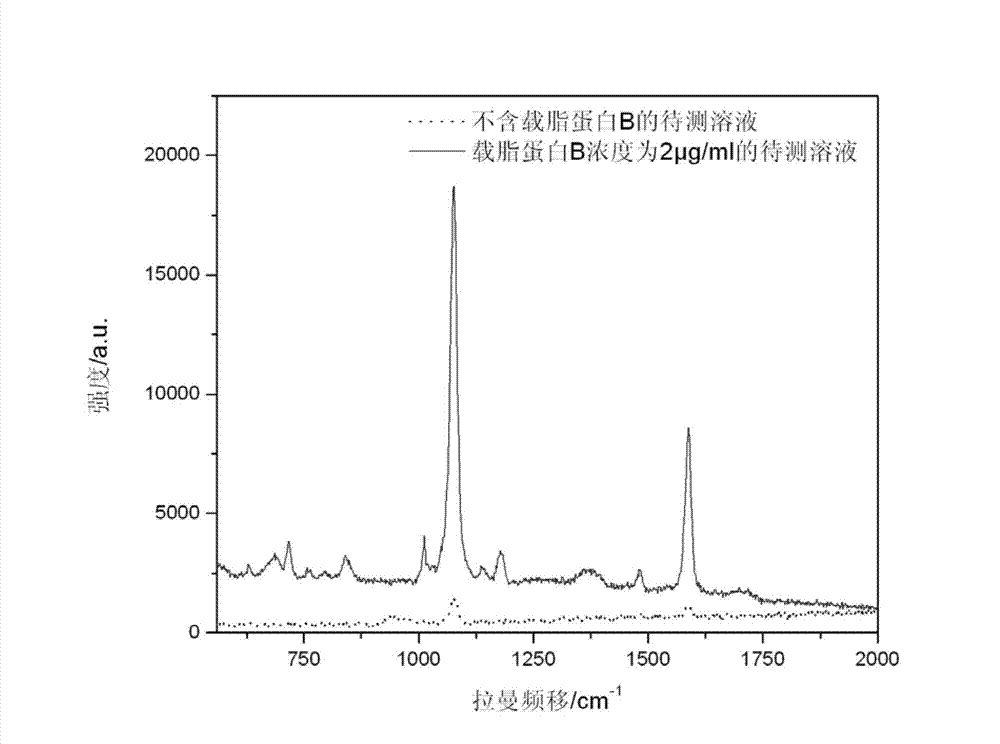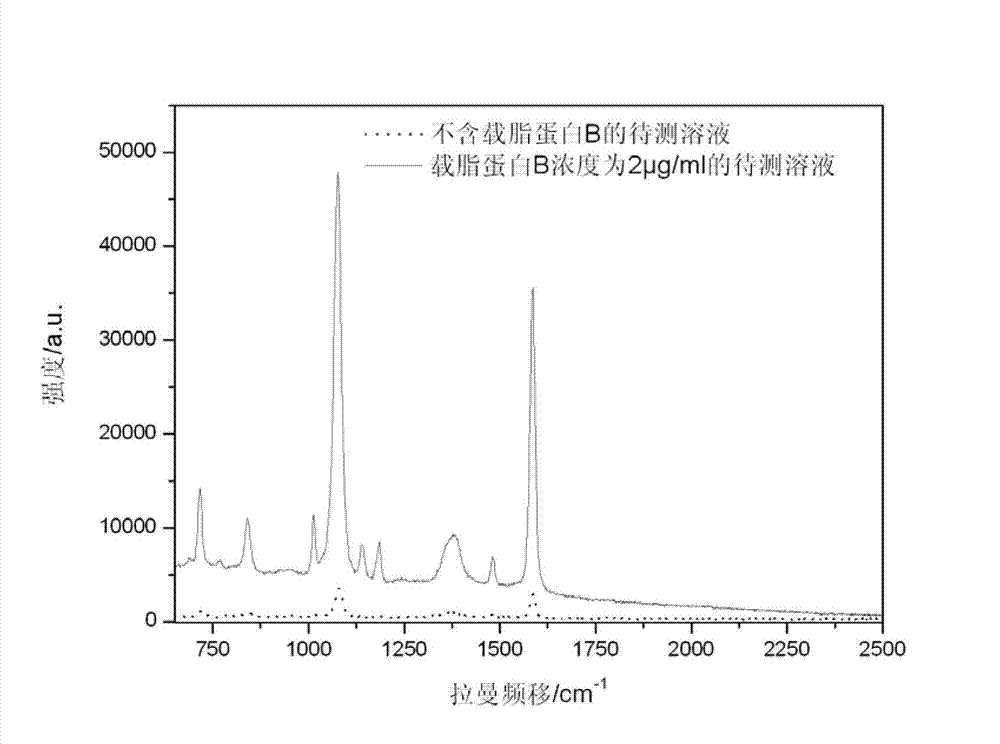Preparation method of immune base and antigen or antibody immunoassay method
A substrate and antibody technology, applied in the direction of measuring devices, instruments, Raman scattering, etc., can solve problems such as difficult mass production, difficult control, narrow spectral lines, etc., to avoid signal instability and non-repeatable, good biological Compatibility, the effect of narrow Raman spectral bandwidth
- Summary
- Abstract
- Description
- Claims
- Application Information
AI Technical Summary
Problems solved by technology
Method used
Image
Examples
Embodiment 1
[0043] The preparation method of a silver nanoparticle-modified immune substrate proposed in this embodiment comprises the following steps:
[0044] ①-1. Take a square single-sided polished silicon wafer with a side length of 5mm, immerse it in an organic solvent, and perform ultrasonic cleaning on the silicon wafer for 30 minutes, then rinse the silicon wafer after ultrasonic cleaning with deionized water, and then Dry the rinsed wafers.
[0045] Here, silicon wafers of other shapes and sizes can also be used for single-side polished silicon wafers; acetone, alcohol or toluene can be used as organic solvents.
[0046] ①-2. Preparation of oxidant solution: under ice bath conditions, slowly add 30% mass percent hydrogen peroxide solution to 98 mass percent concentrated sulfuric acid solution at a ratio of 1:3 by volume to prepare An oxidant solution is obtained. For example, take 12ml of concentrated sulfuric acid solution with a mass percentage of 98% and pour it into a glas...
Embodiment 2
[0058] This example proposes a method for preparing an immune substrate modified by silver nanoparticles. The method for preparing an immune substrate modified by silver nanoparticles in this example is the same as the method for preparing an immune substrate modified by silver nanoparticles given in Example 1. The process is basically the same, except that the mass percentage of hydrofluoric acid used in this embodiment is 5%, the mass percentage of the silver nitrate solution is 3%, and the time for the silicon wafer to be immersed in the silver nitrate solution is 2 minutes.
Embodiment 3
[0060] This example proposes a method for preparing an immune substrate modified by silver nanoparticles. The process is basically the same, except that the mass percentage of hydrofluoric acid used in this embodiment is 15%, the mass percentage of silver nitrate solution is 1%, and the time for immersing the silicon wafer in the silver nitrate solution is 3 minutes.
PUM
| Property | Measurement | Unit |
|---|---|---|
| Concentration | aaaaa | aaaaa |
| Concentration | aaaaa | aaaaa |
Abstract
Description
Claims
Application Information
 Login to View More
Login to View More - R&D
- Intellectual Property
- Life Sciences
- Materials
- Tech Scout
- Unparalleled Data Quality
- Higher Quality Content
- 60% Fewer Hallucinations
Browse by: Latest US Patents, China's latest patents, Technical Efficacy Thesaurus, Application Domain, Technology Topic, Popular Technical Reports.
© 2025 PatSnap. All rights reserved.Legal|Privacy policy|Modern Slavery Act Transparency Statement|Sitemap|About US| Contact US: help@patsnap.com



